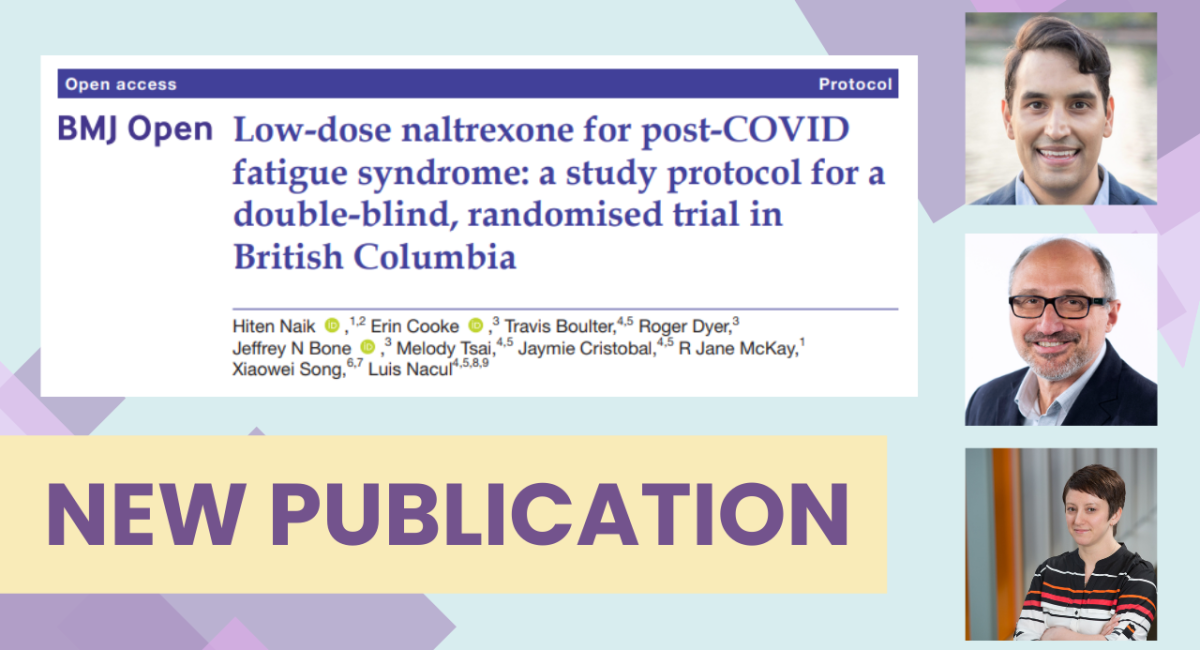The Complex Chronic Diseases Research Program, led by Dr. Luis Nacul is based at the BC Women’s Health Research Institute. Our research focuses on understanding the determinants of health, potential etiological factors, health resource utilization, experiences and outcomes among individuals affected by complex chronic diseases.
What is a Complex Chronic Disease?
Complex chronic diseases like Myalgic Encephalomyelitis/Chronic Fatigue Syndrome and Fibromyalgia are illnesses that last a long time, require treatment and management and often do not get better on their own. These conditions affect many Canadians. Despite the fact that they are relatively common, the underlying causes and the disease mechanisms responsible for these chronic complex conditions are not fully understood. In addition, individuals affected by complex chronic diseases face unmet medical and social needs.
Research Projects
Low Dose Naltrexone Trial
The study aims to determine if low-dose naltrexone (LDN) reduces fatigue, improves related symptoms, and reduces inflammatory markers in peripheral blood in cases with Post-COVID-19 Fatigue Syndrome (PCFS) from COVID-19 virus (i.e. confirmed SARS-CoV-2 case). The trial is being conducted by the Complex Chronic Diseases Research Program at BC Women’s Hospital in collaboration with the Post COVID-19 Interdisciplinary Clinical Care Network.
CCDP Data Registry
The CCDP Data Registry is a multi-year project that aims to better a) characterize the population presenting for management of complex chronic disease and b) assess the effectiveness of the CCDP in improving patients’ outcomes over time. The information obtained from this registry will hopefully lead to improved assessments and interventions for the tens of thousands of individuals in British Columbia and beyond with symptoms or a diagnosis of Fibromyalgia, Chronic Fatigue Syndrome and/or Chronic Lyme-Like Syndrome.
The Contributions of Viral Infections to ME/CFS
This study is investigating the contributing role of exposure to specific viral pathogens to the development of ME through accessing the existing population cohort established through the BC Generations Project (BCGP) and the UK ME Biobank (UKMEB). Analyses of bio-samples from across the Atlantic will help the understanding of disease etiology and pathophysiology of ME, opening possibilities for targeted approaches to disease prevention and treatment.





